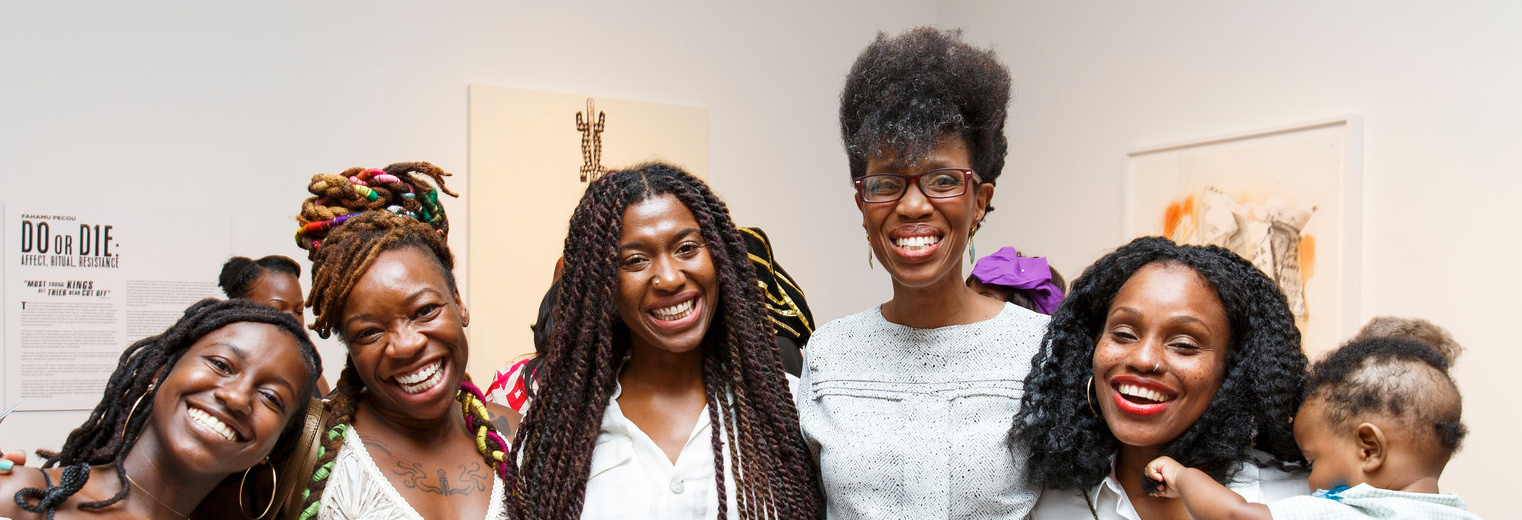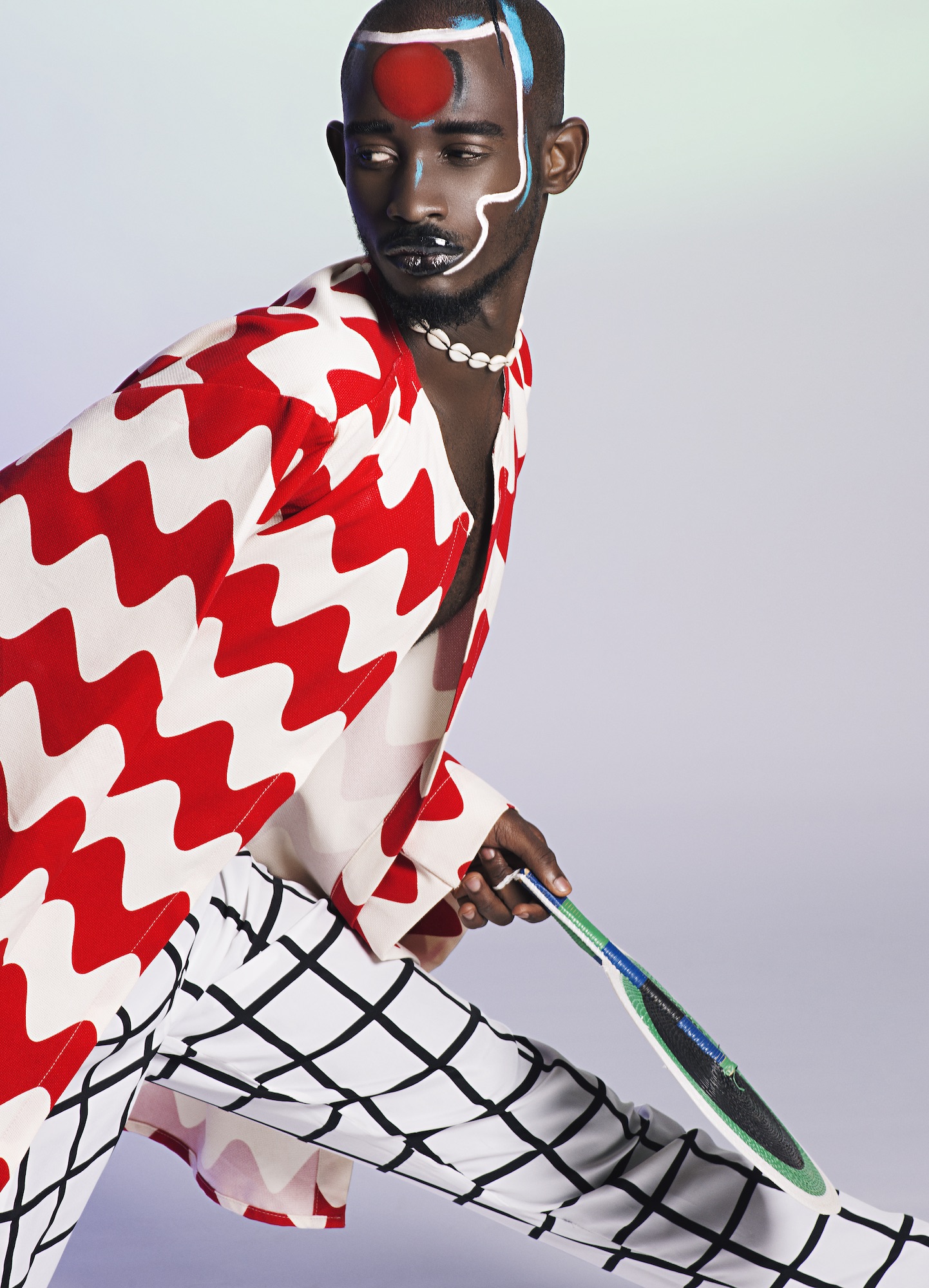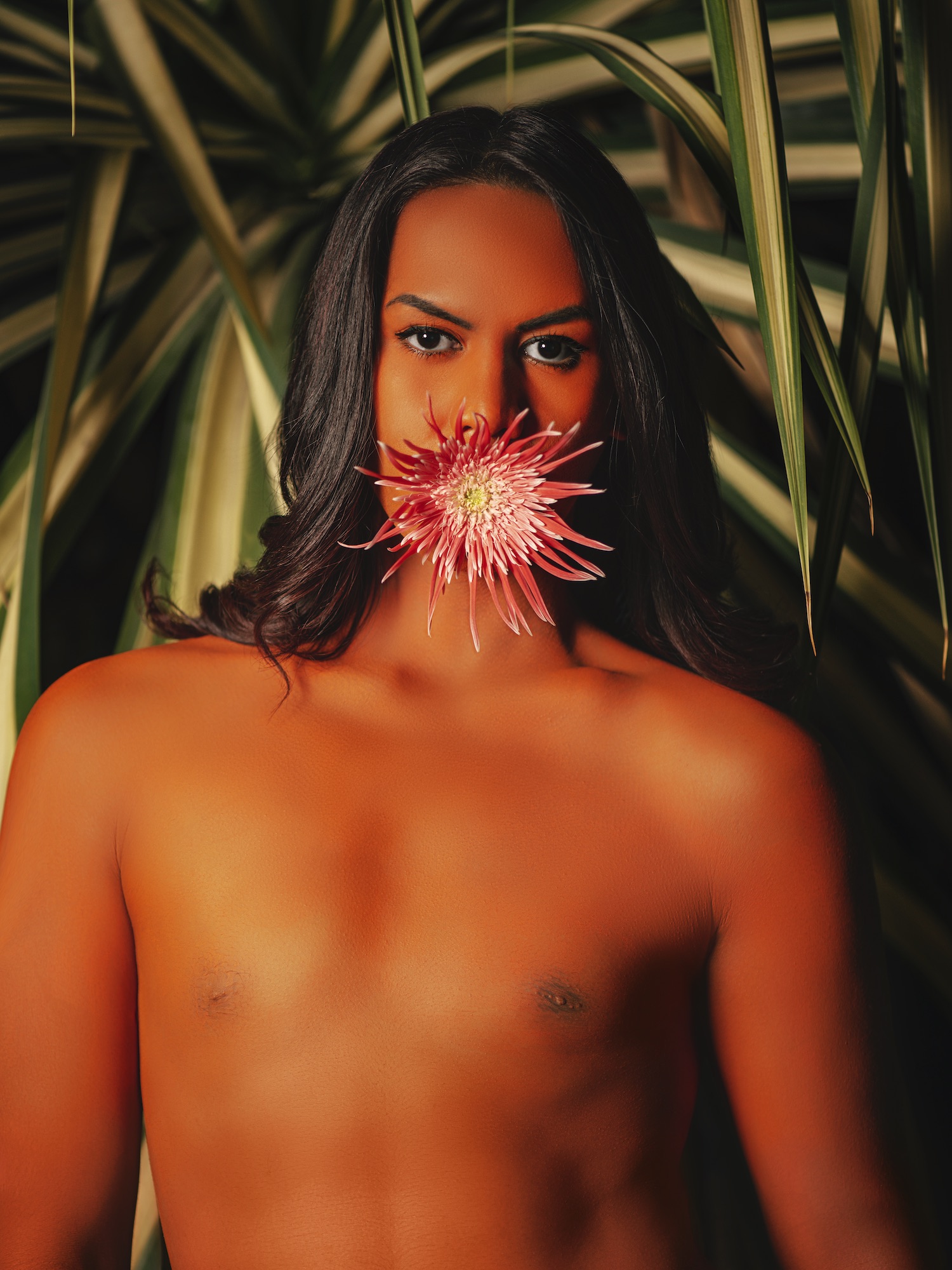


Namsa Leuba produced the series Next Generation Lagos during her artist residency in Nigeria in 2015, and the works show off the vibrant, powerful, and creative youth culture within the city of Lagos. Leuba captured the energy of the city of Lagos, or as she affectionately refers to it as “Lagos-chaos”. This series Next Generation Lagos explores Leuba’s interest and exquisite eye for fashion photography. The bright colors help pay homage to traditional textiles worn in Lagos; however, their design and fluidity help pave the way for the Next Generation (of) Lagos to feel more freedom in their dress and break free from traditional norms and stigmas. In Lagos, men and women have been following a specific dress conventions featuring loose-fitted vibrant textiles. Men would have short hair, women would have long hair, and women are the only ones who wear makeup. The series Next Generation Lagos breaks cultural norms and offers a new way of self-expression that loosely pays homage to tradition. Specifically, within the series, the piece Emmanuel II, from 2015, the man pictured follows the tradition with bright colors and loose-fitting clothing. However, his face has face paint and makeup, and he breaks the traditional style of dress and wears westernized formal attire. The youth of Lagos broke the established Nigerian boundaries of fashion, and through their studio portraits, Leuba captures their innovation and determination.
The youth of Lagos also stand the forefront of protests against police brutality and are determined to make their voices heard. Even though it is not illegal to break traditional gender narratives for clothing, the police are known to stop community members from this offense, and the police even allude to it being illegal (even though it is not). In 2014, former Nigerian president Goodluck Ebele Johnathan passed the Same-Sex Marriage Prohibition Act, and many law enforcement personnel are using the act as an excuse for brutality. Models from the Next Generation Lagos series would be scrutinized over their appearance by the police if they wore their outfits on the street. The police use appearances to determine if people are breaking the law and are in a homosexual relationship. It is important to note that the genesis of the photos was in the studio belonging to the Kó gallery, which allowed the series to create controversy from a safe environment; the series was also exhibited at the gallery. The images were not published in Nigerian magazines, likely for the safety of all involved in the project. Namsa Leuba deliberately used fashion to help the youth of Lagos make a statement against the human rights violations that are happening within their country. It is a bright call for help and a smoke flare for the political climate of their country.
Dealing with the danger posed by self-expression happens just the same in Tahiti. Specifically, to the mahu, men considered effeminate, and rae-rae, transgender woman, who are both are an integral part of indigenous Tahitian culture. They have been accepted and understood within the culture, for the most part. However, that does not mean that these communities have not suffered from mistreatment. Throughout history, indigenous women have been fetishized and portrayed as the “Exotic,” particularly in the realm of modern art and popular culture. Namsa Leuba found Paul Gauguin’s paintings of Tahitian women, which he painted for his pleasure, inspirational to her series The Illusions. Although Namsa Leuba echoes Gauguin’s style, she created her works to showcase the individuality of the mahu and rae-rae communities. Leuba adorned them with colorful makeup and body paint to showcase their unseen identities and make them feel beautiful. In an article about the series for CNN, Matthew Ponsford wrote that before photographing, Leuba would spend hours with each model. During this time, Namsa Leuba would listen to their life experiences and learn the best angle to capture them in a way that would make them feel heard and beautiful. In the Ponsford article, Leuba said, “Sometimes I would hear some really (tough) stuff that has happened to them, and it was not sexy or glamorous. It was difficult. And others were well-accepted by their family and their community… All of the ‘life cycles’ were different.” Although many mahu and rae-rae have their community’s acceptance they still are at risk of higher rates of violence, sexual assault, and discrimination. The series Illusions has a work within it entitled A Fleur De Peau, 2019 and the work showcases the effeminate energy within the model and highlights their beauty. This photo helps alter typical beauty stereotypes and helps break down barriers of acceptability. Hanna has long hair and poses topless with a flower in her mouth, and the raw feminine energy is palpable and powerful.

Namsa Leuba. A Fleur de Peau, 2019. Part of the Illusions series.
Both Namsa Leuba’s Emmanuel II from 2015 and A Fleur De Peau offer distinct social commentary for marginalized groups while still showcasing Namsa Leuba’s innate passion for fashion photography, bold colors, and props. Each work has a narrative scene that has a deeper meaning within. Through the Next Generation Lagos series, Namsa Leuba references the LGBTQIA+ community and supports it through breaking traditional gender norms of fashion choices in the Illusions series. Whether the reference is through breaking traditional fashion expectations with makeup on a male, like in Emmanuel II, or elevated representation of marginalized groups like A Fleur De Peau, Namsa Leuba uses her platform to fight for equality.
-by Adj Lee, Halsey Institute intern
top image: Namsa Leuba. Emmanuel II, 2015. From the NGL series.